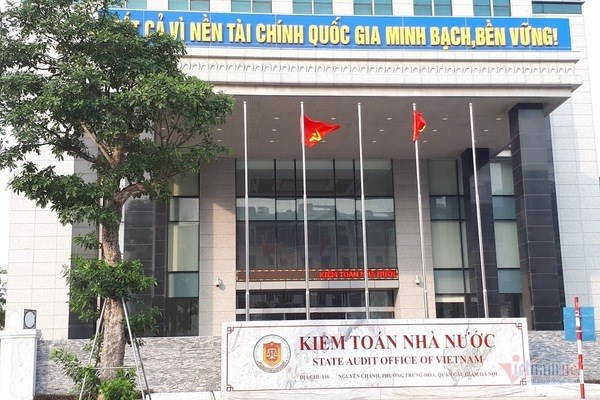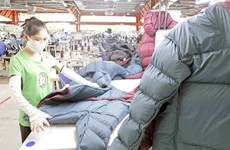Vietnam develops environmental audit on par with int’l trend
 The State Audit Office of Vietnam (SAV) has carried out an array of activities to improve environmental auditing (Photo: VNA)
The State Audit Office of Vietnam (SAV) has carried out an array of activities to improve environmental auditing (Photo: VNA)Hanoi (VNA) – The State Audit Office of Vietnam (SAV) has carried out an array of activities to improve environmental auditing, which plays a critical role in the sustainable development of the country.
According to State Auditor General Ho Duc Phoc, Vietnam puts aside an amount of money in environmental protection activities every year, and it is necessary to supervise the management and use of the capital to make sure that it is used effectively.
In Vietnam, environmental auditing remained a fairly novel process that is usually incorporated into traditional auditing processes rather than standing on its own. Not until 2008 did the SAV officially establish the working group on environmental auditing, and introduce environmental auditing in the strategy to develop the State Audit by 2022.
Phoc described this as a significant move of the SAV since it worked to develop new kinds of auditing, which is on par with the global practices.
Several outstanding environmental audits of the SAV, including a 5 million hectares afforestation project, waste treatment project in Hoi An city, and issues relating to the Mekong river, have shown encouraging results.
However, the audits have been integrated in auditing of financial reports, and the SAV lacks a complete and specific process for environmental auditing, Phoc added.
Understanding the responsibility to protect the environment and promote sustainable development, the SAV has worked to set up an apparatus to pilot environmental audits. The first audits were organised to evaluate environment management of local industrial parks, as well as assess the implementation of plastic bags reduction in Ho Chi Minh City.
While carrying out financial audits and compliance audits, the SAV made assessments on the impacts of environmental issues on financial reports, figure out whether the audit firms comply with environment management rules or not, and assess environmental risks in the internal control systems of the audited organisations.
With good outcomes of the audits, the SAV is working to expand integrated audit model in the coming time.
Furthermore, the SAV also sees the significance of international cooperation in environmental audit since it is completely new. The SAV has carried out various cooperation programmes to learn experience from other nations and coordinate to realise mutual audit targets.
At the 55th Governing Board meeting of the ASOSAI held in the form of a teleconference on July 27, the SAV proposed an audit on water resources in the Mekong River basin be conducted by the agency, called “ASOSAI’s cooperative environmental audit in Southeast Asia in the 2020-2021 period”.
A parallel audit on water issues in the river basin was successfully carried out with the participation of five Supreme Audit Institutions (SAIs) of Thailand, Cambodia, Laos, Myanmar and Vietnam, with technical assistance from the German Development Cooperation.
Besides, it joined several workshops to share environmental audit experience with regional countries.
The theme “Environmental Auditing for Sustainable Development" is one of the important contents of the agenda of the 14th Assembly of the Asian Organisation of Supreme Audit Institutions (ASOSAI) in Hanoi as it clarifies the role of environmental auditing in supporting governments to achieve sustainable development goals (SDGs).
The 2018 assembly, held for the first time in Vietnam since the country joined ASOSAI since 1997, saw the attendance of 250 delegates from 46 Asian auditing institutions as well as representatives from the International Organisation of Auditing Institutions and other international organisations as observers.
Vietnam’s auditing currently has strengths in legal compliance and financial auditing, while remaining weak in operational auditing – including environment, IT, or natural resources auditing – the areas in which it is seeking to build up internal capacity.
ASOSAI 14 was the first assembly to issue a declaration, the Hanoi declaration, which contains members’ commitments on public auditing with a focus on sustainable development and environmental protection.
ASOSAI 14 assembly is one of Vietnam’s biggest diplomatic events in 2018, besides the World Economic Forum on ASEAN, and a chance for the country to promote its culture and development achievements to international friends and partners./.












